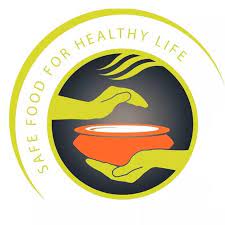
Thiruvananthapuram, June 28 (BPNS)
Though crores of rupees were made from the sale of offerings such as Appam and Aravana at Sabarimala hill shrine, scant regard is being given to the food safety aspects. It turns out that the ‘Aravana Prasadam’ flouts the Food Safety Standards (Packaging and Labelling) Regulations, 2011 provisions as it didn’t mention details like list of ingredients, nutritional information, declaration of food additives, FSSAI license number, best before and use by date and others.
It is in the compliance audit report for the year ended March 2021 tabled by the Comptroller and Auditor General of India at the Assembly on Tuesday that the anomaly got highlighted.
At the same time, the government informed the audit team that the matter had been brought to the notice of the Devaswom Commissioner for obtaining an FSSAI license and for complying with the FSS (Packaging and Labelling) Regulation.
It was mentioned that the absence of a food label with necessary details deprives the end-user of information regarding its ingredients and the date before which it can be used.
Approximately 29 lakh liters of Aravana Prasadam are manufactured in Sabarimala every year.
The audit report also finds that it’s without checking all the parameters that the food is being certified as ‘satisfactory’. That means, there is no assurance that these food items that are consumed by devotees every year meet the prescribed food safety standards.
Audit noticed that though the laboratory at Pathanamthitta started functioning in 1998, it was neither notified by FSSAI nor accredited by NABL. There is also a Food Safety Laboratory set up at Pampa. However, the various parameters not being checked in the two laboratories included tests for food additives, metal contaminants, pesticide residue, etc.
At the same time, the report also found deficiencies in the efficient implementation of the Food Safety and Standards Act, 2006 in the state. The report highlights that the act suffered from deficiencies relating to various stages of implementation such as licensing and registration, inspection and sample collection, food analysis, and monitoring.
It stated that the monitoring by the department was insufficient as reflected in the absence of a mechanism to follow up on Food Business Operators (FBO) whose licenses had expired, non-adherence to the norms for inspection of registered FBOs etc. There was a delay in the issue of licenses and registrations by the Food Safety Department. A comparison of the database of FBOs maintained by the Food Safety Department with similar data available with other Government agencies/ LSGIs revealed that a large number of FBOs remained outside the ambit of monitoring by the department. Also, the CAG remarked that the department could not ensure that non-conforming products did not reach the public.









